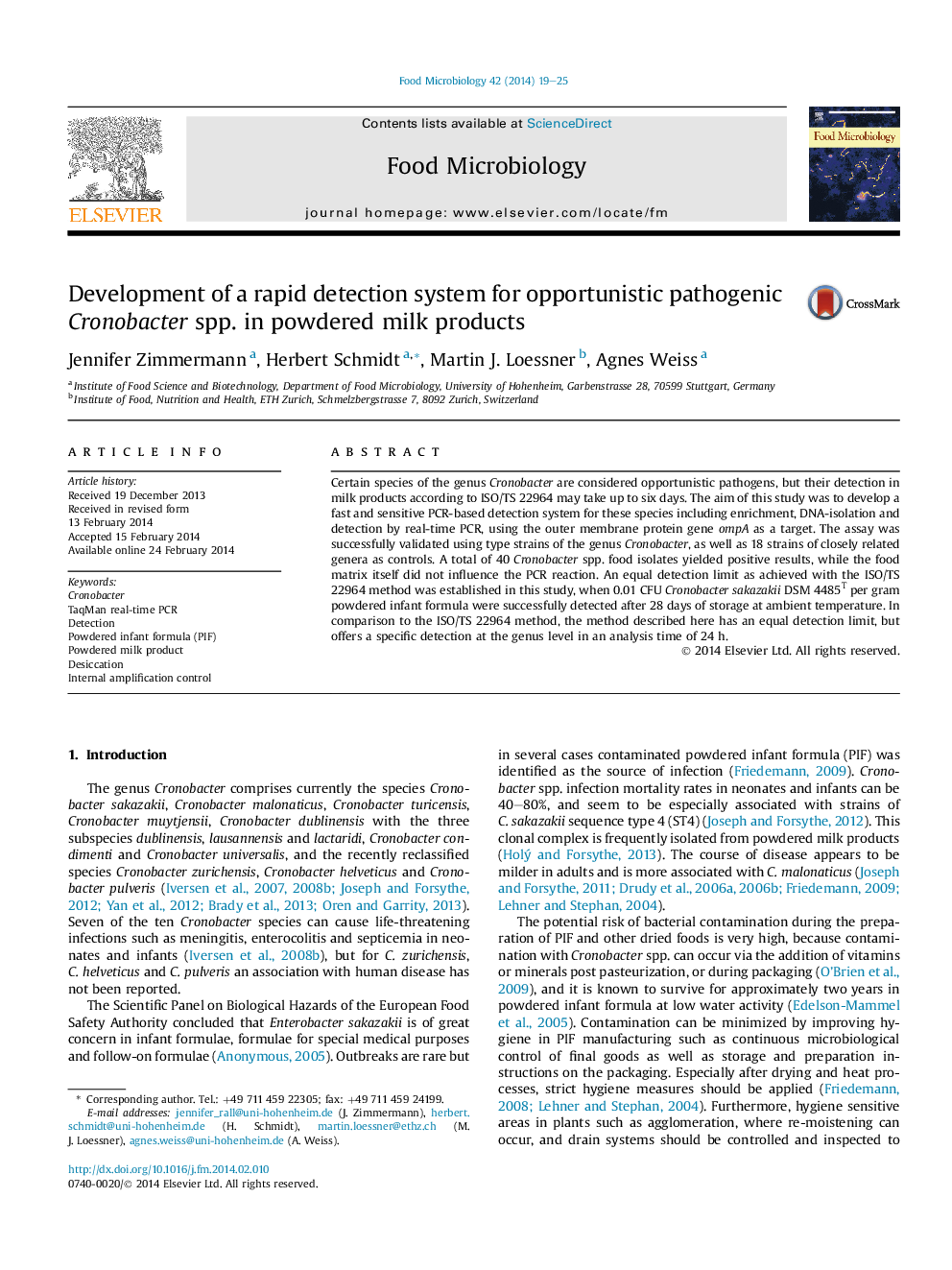| Article ID | Journal | Published Year | Pages | File Type |
|---|---|---|---|---|
| 4362876 | Food Microbiology | 2014 | 7 Pages |
•Fast and sensitive detection of pathogenic Cronobacter spp.•Detection limit similar to ISO/TS 22964.•Detection time <24 h.•Validation with 53 strains of Cronobacter spp. and 18 strains of non-Cronobacter spp.•Detection of desiccated cells in powdered infant formula possible.
Certain species of the genus Cronobacter are considered opportunistic pathogens, but their detection in milk products according to ISO/TS 22964 may take up to six days. The aim of this study was to develop a fast and sensitive PCR-based detection system for these species including enrichment, DNA-isolation and detection by real-time PCR, using the outer membrane protein gene ompA as a target. The assay was successfully validated using type strains of the genus Cronobacter, as well as 18 strains of closely related genera as controls. A total of 40 Cronobacter spp. food isolates yielded positive results, while the food matrix itself did not influence the PCR reaction. An equal detection limit as achieved with the ISO/TS 22964 method was established in this study, when 0.01 CFU Cronobacter sakazakii DSM 4485T per gram powdered infant formula were successfully detected after 28 days of storage at ambient temperature. In comparison to the ISO/TS 22964 method, the method described here has an equal detection limit, but offers a specific detection at the genus level in an analysis time of 24 h.
